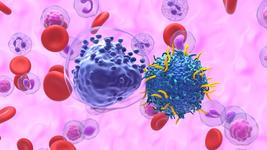CRISPR-Edited Beta Cells Avoid Immune Rejection Without Immunosuppressants in Human Transplantation
CMN Intelligence - The World’s Most Comprehensive Intelligence Platform for CRISPR-Genomic Medicine and Gene-Editing Clinical Development
Providing market intelligence, data infrastructure, analytics, and reporting services for the global gene-editing sector. Read more...
Exogenous insulin injections have been the standard treatment for type 1 diabetes for over 100 years but remain limited and non-curative. Allogeneic transplantation of insulin-producing beta islet cells could offer a cure. Currently, patients undergoing transplantation of donor allogeneic cells require potent immunosuppressive drugs to prevent rejection by the body’s immune system. These drugs are associated with debilitating adverse side effects.
In a recent study, researchers in Sweden, Norway and United States explored the potential for a novel cure for diabetes that surpasses the need for exogenous insulin treatment through transplantation of gene-edited human hypoimmune platform (HIP) islet cells.
This study involved the design of CRISPR-Cas12b-edited donor islet cells targeting depletion of HLA class I and II to protect against adaptive T-cell rejection and overexpression of CD47 to inhibit innate immune-cell killing through the inhibition of macrophages and natural killer cells. This first in-human, open-label study showed that these gene-edited cells engrafted in one man with type 1 diabetes did not induce any immune response associated with non-edited or partially edited cells. The study further reported consistent, stable beta cell function over a 12-week period. Finally, it demonstrated that HIP islet cell grafts could be transplanted iteratively to achieve insulin independence.
The research, published in The New England Journal of Medicine on August 4th, 2025, was conducted by Per-Ola Carlsson, Xiaomeng Hu, Hanne Scholz, Sofie Ingvast, Torbjörn Lundgren, Tim Scholz, Olof Eriksson, Per Liss, Di Yu, Tobias Deuse, Olle Korsgren, and Sonja Schrepfer.
To get more CRISPR Medicine News delivered to your inbox, sign up to the free weekly CMN Newsletter here.
Tags
CLINICAL TRIALS
Sponsors:
Base Therapeutics (Shanghai) Co., Ltd.
Sponsors:
Base Therapeutics (Shanghai) Co., Ltd.







